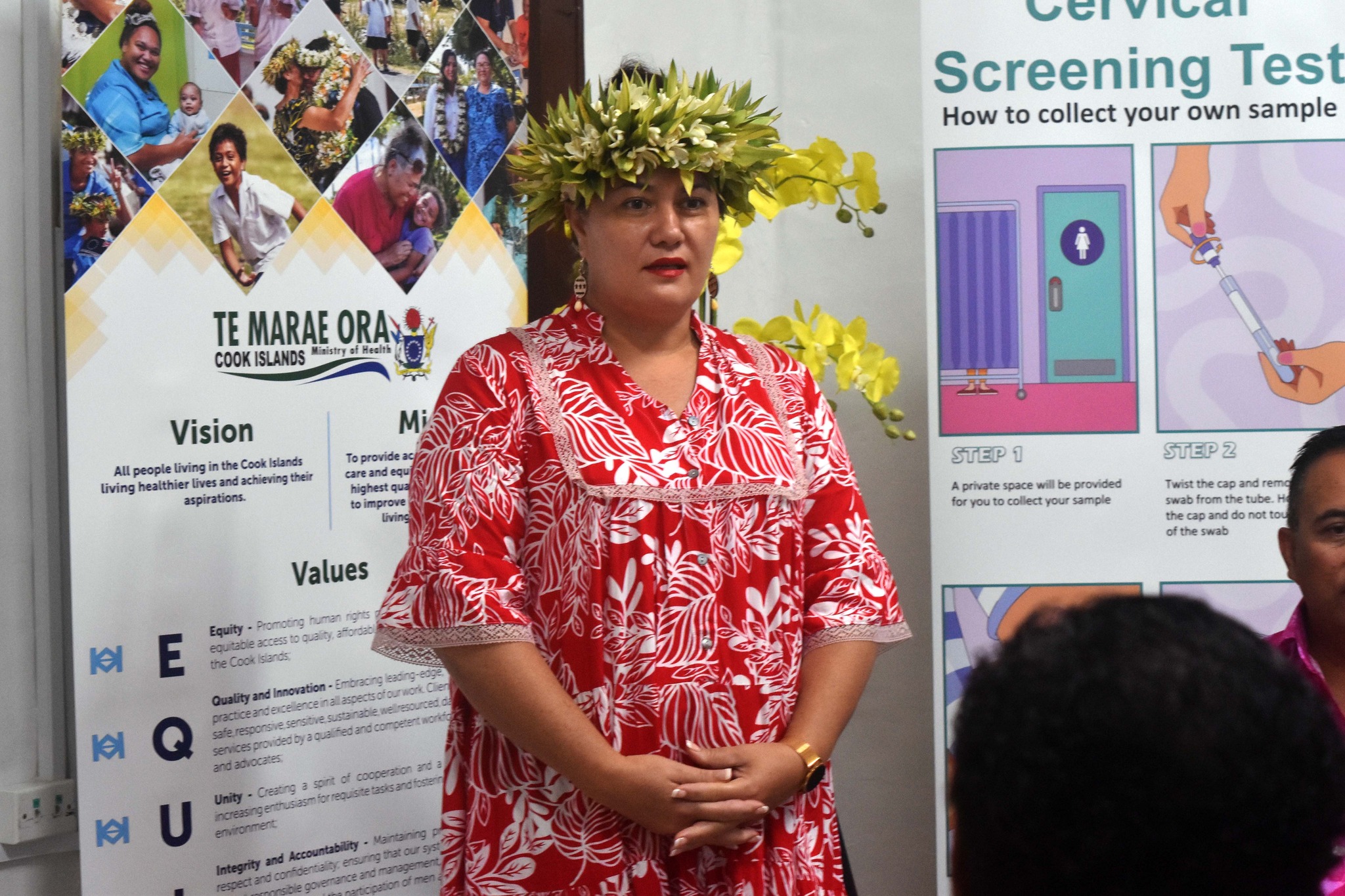Cervical cancer self-testing screens nearly 300 women
Thursday 15 February 2024 | Written by Melina Etches | Published in Health, National

Minister for Health Rose Vainetutai Toki-Brown during the launch of Cervical Cancer Self-Testing Programme in December last year. TMO/23122025
Despite facing registration dips and no-shows, Te Marae Ora Ministry of Health’s cervical cancer self-testing programme has successfully screened 290 women in Rarotonga.
Regular screening helps prevent cervical cancer and save lives. In Rarotonga, pre-cancerous changes can now be detected through both Pap smears and Human Papillomavirus (HPV) tests.
Taking a step forward in improving women’s health, Te Marae Ora has screened 290 women since starting the Cervical Cancer Self-Testing HPV Programme on Monday, January 15.
The goal of cervical cancer screening is to find abnormal cells in the cervix or cervical cancer early when it is more treatable and curable.
Dr Hannah Cummings, Hospital Health Services house officer, said: “We have completed 60 per cent of the trial run of the cervical cancer self-testing programme in the last three weeks.”
Cummings said the first batch of swabs (174 total) were sent to New Zealand a few weeks ago. Te Marae Ora has received its first set of results (from week one testing on January 15 and 16).
Cummings said they hope to complete analysing the results this week. She also noted positive feedback from women who received their results via an automated SMS alert.
Cummings said: “After analysing the results, we will ensure that everyone who had done their test (week one batch only) are informed of their results by this week.”
“It is great to know that the results had returned in a timely manner – in three weeks’ time as designed,” said Cummings, who added that women need to wait three weeks after their swab to receive results.
While many women participated, some challenges included no-shows for appointments. Cummings said week two of the programme saw a dip in registration numbers.
Te Marae Ora will be looking into strategies such as an outreach screening programme, community awareness, advertising and utilising Facebook and other social media platforms to promote the programme.
The cervical cancer self-testing programme is expected to be completed in two weeks’ time.
“We will have to analyse all trouble shoots and formulate solutions for them to ensure the procedure is established well in-country. From then, we will roll-out to the outer islands,” Cummings said.
Earlier this month, Te Marae Ora used their mobile bus at Constitution Park to offer self-tests to Vodafone employees. This service was extended to other nearby ministries.
Cummings said: “We are more than happy to liaise with large companies for outreach screening i.e. coming into your workplace to set up a station for screening.”
“We find that this method is optimal to reach our target goals with many women coming forth so easily.”
This Cervical Cancer Self-Testing HPV Programme is run in partnership with the Cook Islands Family Welfare Association (CIFWA) and made possible by a donation of 500 self-test kits from the Victorian Cytology Service (VCS) Foundation Australia to launch cervical screening for women aged 25 and over.

















































